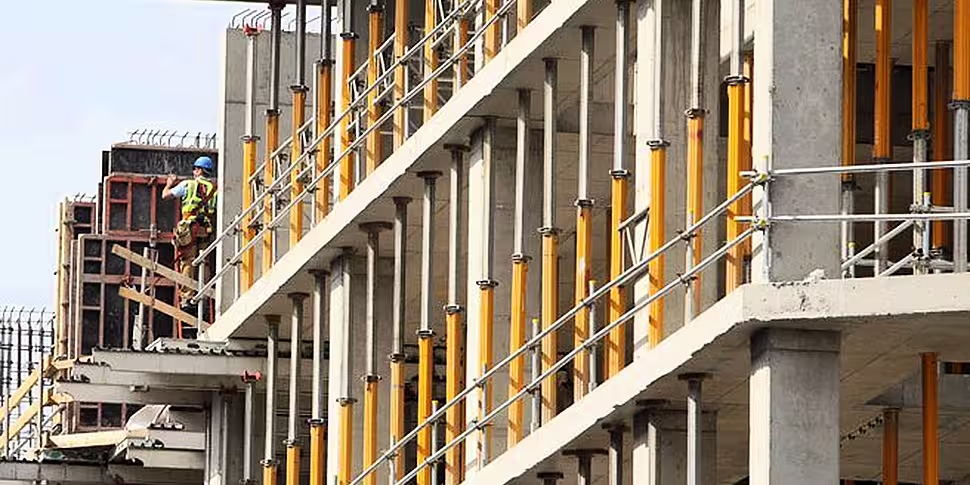Recent research suggests we should be "very optimistic" about the future of the construction industry.
However, speaking on Down To Business, General Secretary of the Construction Industry Federation Tom Parlon said they are "conscious" of a potential skill shortage in the future.
"We need an extra 110,000 people," he said. "They're not really coming through the system. we had a terrific apprenticeship scheme before the collapse in the industry. Unfortunately, that fell asunder and people weren't able to finish their apprenticeships."
Mr Parlon put it down to the education system pushing young people towards third-level education and away from trade services. He called on the Department of Education to do more when it comes to encouraging school leavers to pursue careers in the trade and skills sector.
Quoting a loss of 180,000 people from the industry following the crash, Mr Parlon stressed that there is growth - and Brexit could provide further opportunity within the sector.
"Brexit seems to be about immigration and Britain not appreciating the immigrants that are there [...] They may choose to come to Ireland instead."
Continuing the recovery
Brian Conway, of Conway-Macbeth Quantity Surveyors, explained why the cost of building didn't decrease significantly during the recession.
"It's not so much the pure construction costs, it's the other things around the whole construction costs," he said. "it's the soft cost of developing. Those other things are the significant portions of cost."
On remaining competitive, Conway said it comes down to managing resources as the sector improves.
"If you look at recent reports, you see the importance of construction in the industry and the potential it has to bring people back to employment, then resources are going to be an issue for us.
"We're seeing a lot of migration of people back to the industry. Equally, we have a young population that needs to be attracted to the industry. We need to show stability in the industry, that there'a s longer-term plan and that it is attractive to school-leavers."
Lessons learned
Brendan Crowley, Head of Asset Based Lending at AIB, said repossessions, among other issues, saw the industry take a hit during the economic downturn.
"A lot of the machinery that was resold went out of the country to auctions to Europe," he told Bobby Kerr at the Construction and Quarrying Machinery Show (CQMS) in Tullamore. "We can see now though that a lot of new machinery has been bought."
He added that banks have learned a lot in terms of risk assessment and lending to developers.
"The appetite for risk is strong. All the indicators show that we can be very optimistic about where this industry is going. Our focus, going forward, is to make sure we are supporting good and viable projects, and not just in the greater urban areas, but spread out around the country right down to smaller SMEs."
Acknowledging that lenders are limited in influencing demand, he continued:
"We are there to support the operators. When they need assets, we will step in to provide the support."









